Lord Ayyappa Swamy, a powerful and transformative deity in Hinduism, represents the embodiment of righteousness (Dharma), self-discipline, and divine wisdom. Known as the union of Lord Vishnu in his Mohini avatar and Lord Shiva, Lord Ayyappa stands as a symbol of purity, strength, and the defeat of evil. His spiritual influence reaches millions, especially in Kerala, where his temple at Sabarimala attracts devoted followers from across the world.
Ayyappa is worshipped as a protector and guide for those seeking to live a life rooted in dharma. Through rigorous penance and devotion, his devotees seek not only material success but also spiritual growth and liberation. The pilgrimage to Sabarimala is a journey of both physical endurance and spiritual transformation, embodying the path of discipline, devotion, and divine grace.
Who is Lord Ayyappa?
Lord Ayyappa, also known as Sastha, Dharmasastha, and Manikandan, is a powerful deity in Hinduism, especially revered in Kerala, India. He is considered the embodiment of self-control, righteousness (Dharma), and truth. Lord Ayyappa is believed to be the union of Lord Vishnu in his Mohini avatar and Lord Shiva, combining the energies of both gods. This divine convergence represents the balance between masculine and feminine principles, creation and destruction, and wisdom and power.
Lord Ayyappa is a celibate god, symbolizing purity, self-discipline, and asceticism. His worship emphasizes values such as self-restraint, devotion, and discipline, and he is often regarded as the protector of righteousness and the destroyer of evil forces. His devotees believe that worshipping him leads to spiritual growth, the fulfillment of dharma, and protection from worldly challenges.
He is also referred to by several names:
Sastha: Meaning the “teacher” or “guide,” symbolizing his role in teaching righteousness and guiding his devotees on the path of virtue.
Manikandan: Derived from the Mani (jewel) found around his neck when he was discovered as an infant in the forest, symbolizing his divine birth and purity.
Hariharasuta: The son of Hari (Lord Vishnu) and Hara (Lord Shiva), representing his divine parentage.
Dharmasastha : Reflecting his embodiment of Dharma, the moral and ethical principles of life.
Lord Ayyappa's influence extends beyond physical attributes; his teachings and principles inspire countless devotees to embrace a life of self-control, spiritual discipline, and compassion for others. He remains one of the most significant deities in Hindu worship, particularly revered through the pilgrimage to Sabarimala.
The Divine Birth of Lord Ayyappa
Lord Ayyappa's birth is surrounded by fascinating legends and theories that highlight his divine nature and significant role in Hindu spirituality. His name and existence are deeply tied to his unique parentage, the unification of Lord Vishnu in his Mohini avatar and Lord Shiva. The story of his birth embodies themes of divine intervention, righteousness, and the destruction of evil.
In South India, the name Ayyappa is thought to signify a revered senior deity, with “Appa” meaning father and “Ayyan” a respectful title. However, the term Ayyappan is not found in the medieval-era Puranas, suggesting the possibility that Ayyappa's worship may have originated from regions outside the traditional Puranic texts. One theory connects the Malayalam word “acchan” and the Tamil word “appa”, both meaning father, to imply Lord Ayyappa as “Lord-Father”, a term denoting his revered position.
Another widely accepted view is that Lord Ayyappa is Hariharasuta. The son of Hari (Lord Vishnu) and Hara (Lord Shiva). His birth is said to be the result of a divine union between Vishnu in the form of Mohini, a seductive avatar, and Lord Shiva. The Mohini avatar was used by Vishnu to deceive the demon Bhasmasura, who had received the boon of burning anything he touched. Upon the defeat of Bhasmasura, Vishnu assumed his female form and united with Shiva, bringing forth the child Dharma Sastha, who later incarnated as Lord Ayyappa.
This divine birth is also associated with the demoness Mahishi, the sister of Mahishasura. After Mahishasura's death at the hands of Goddess Durga, his sister Mahishi sought revenge. She performed severe penance and received a boon from Brahma, which made her invincible, and the only one capable of slaying her would be a child born of Lord Vishnu and Lord Shiva. Vishnu, in his Mohini form, united with Shiva to produce a son who was destined to defeat Mahishi. This child was named Hariharaputra, who would later be known as Lord Ayyappa.
These divine stories surrounding his birth highlight Lord Ayyappa's role as the destroyer of evil, a symbol of dharma, and a god of righteousness. His unique birth story emphasizes his divine mission to restore cosmic balance and guide humanity on the righteous path.
Iconography of Lord Ayyappa
The iconography of Lord Ayyappa is rich with symbolism, reflecting his divine attributes, his power as a warrior, and his embodiment of self-discipline and righteousness. Lord Ayyappa's physical representation in temples and art conveys deep spiritual meaning, offering a visual guide to his devotees on the path of dharma (righteousness), self-control, and devotion.
Youthful and Divine Appearance:
Lord Ayyappa is usually depicted as a youthful, strong, and vibrant figure, signifying his eternal youth and vigour. His youthful appearance symbolizes endless energy, courage, and the vitality of life. He often exudes a sense of divine charisma, inspiring his devotees to maintain the energy and determination to follow the path of righteousness.
Bow and Arrow:
A key feature in Lord Ayyappa's iconography is the bow and arrow. The bow, typically held in his left hand, symbolizes his strength, readiness to fight against evil, and ability to protect dharma. The arrow signifies precision, control, and focus, qualities that are essential for maintaining balance in life and upholding moral integrity. The bow and arrow also represent his warrior nature, illustrating his power to annihilate negative forces and his unwavering commitment to justice.
Sword or Dagger:
In his right hand, Lord Ayyappa is sometimes shown holding a sword or dagger, a representation of his ability to destroy evil and protect his devotees from harm. The sword symbolizes divine intervention to cut through ignorance and worldly distractions, enabling his followers to stay focused on their spiritual path.
Seated on a Tiger:
One of the most powerful symbols in Lord Ayyappa's iconography is his portrayal riding a tiger. The tiger represents strength, courage, and the triumph over wild forces or negative energies. The tiger as Lord Ayyappa's vahana (vehicle) signifies his victory over the challenges in life, his power to tame the untamed, and his control over both the material and spiritual realms. It also emphasizes his dominance over the forces of nature and his role as a protector of the universe.
The Crescent Moon:
Lord Ayyappa is often depicted with a crescent moon on his forehead, a symbol associated with Lord Shiva. The moon represents purity, calmness, and serenity, signifying that Lord Ayyappa is a balanced force who, though a warrior, remains connected to the divine energies of peace and tranquility.
Attire and Accessories:
Lord Ayyappa is adorned with sacred accessories that represent both his royal and ascetic nature. His armlets, necklaces, crowns, and gem-studded waistband denote his divine status as a powerful deity. His jewel-studded attire represents his royalty, while his sacred threads and belt symbolize his discipline, purity, and connection to dharma. In some depictions, Lord Ayyappa is also shown wearing a bell around his neck, which symbolizes his divine protection over his devotees.
Yogic Pose and Spiritual Discipline:
In some depictions, Lord Ayyappa is shown seated in a yogic posture, signifying his mastery over self-control, meditation, and spiritual discipline. The yogic posture emphasizes the importance of inner peace, focus, and self-restraint, qualities central to Lord Ayyappa's teachings. This also connects him to the ideals of renunciation and spiritual awakening, encouraging his devotees to follow a disciplined, righteous path.
The Three-Eyed Coconut (Poomani):
A unique feature associated with Lord Ayyappa's iconography is the three-eyed coconut, often used by devotees during the Sabarimala pilgrimage. The three eyes symbolize the three aspects of the divine: the past, present, and future, and represent the all-seeing nature of Lord Ayyappa. The coconut also signifies purity and is an important offering during his worship.
The Irumudi:
Devotees carry the Irumudi (a cloth bundle with offerings) on their heads during the pilgrimage to Sabarimala. The Irumudi has two compartments, one for personal items and the other for sacred offerings. This sacred bundle is a key element in Ayyappa worship and symbolizes the devotion, sacrifice, and discipline required to receive his blessings.
In summary, Lord Ayyappa's iconography is designed to reflect his divine power, purity, and the balance between strength and spirituality. Each element of his depiction carries profound symbolic meanings, guiding his devotees toward living a life of discipline, dharma, and devotion. His images serve as a constant reminder of the spiritual journey one must undertake, overcoming obstacles, practicing self-control, and ultimately achieving divine wisdom and protection.
The Divine Journey and Stories of Lord Ayyappa
The legends surrounding Lord Ayyappa are rich and spiritually profound, reflecting his divine nature and his role as a protector of dharma. These stories emphasize his origin, divine mission, and connection to his devotees, reinforcing his status as a deity who leads humanity towards righteousness and spiritual fulfillment.
The Divine Birth of Lord Ayyappa:
The most popular story about Lord Ayyappa's birth relates to his parentage, which was a divine union between Lord Vishnu in his Mohini form and Lord Shiva. The tale begins with Bhasmasura, a demon who was granted a boon by Lord Shiva, allowing him to burn anything he touched. When he attempted to burn Lord Shiva himself, Vishnu, in his Mohini form, deceived the demon into destroying himself. After the death of Bhasmasura, Vishnu united with Shiva, and their union gave birth to Lord Ayyappa, also known as Hariharaputra (the son of Vishnu and Shiva).
The Story of Mahishi:
The legend of Mahishi, the sister of the demon Mahishasura, is also central to Lord Ayyappa's birth. After the defeat of Mahishasura by Goddess Durga, Mahishi, seeking revenge, performed severe penance and was granted a boon from Brahma that only a child born of Vishnu and Shiva could defeat her. This led to the birth of Lord Ayyappa, who was destined to end Mahishi's reign of terror. Lord Ayyappa grew up to be a warrior god, skilled in martial arts, and ultimately defeated Mahishi, restoring balance in the universe.
The Discovery of Lord Ayyappa by King Rajashekhara Pandiyan
:
Another popular legend about Lord Ayyappa's life involves his discovery by King Rajashekhara Pandiyan, the ruler of the Pandalam Kingdom. The king, who was childless, found an infant boy by the riverbank, wearing a mani (jewel) around his neck. The child was named Manikandan by the king, and he was raised in the royal palace. Manikandan grew up to be an extraordinarily talented young man, excelling in martial arts, wisdom, and ethics.
However, due to court conspiracies, Manikandan faced a series of challenges, including a plot to remove him from the line of succession. The king's wife, influenced by deceitful ministers, tried to have Manikandan killed by sending him to retrieve tigress milk. Manikandan bravely went to the forest, returning on the back of a tigress, symbolizing his divine nature and his victory over fear. Realizing his divinity, the king and the people of the kingdom recognized him as an incarnation of the gods. Lord Ayyappa then directed the king to build the temple at Sabarimala, the sacred site where he would be worshipped by millions.
How to Worship Lord Ayyappa
Worshiping Lord Ayyappa requires devotion, self-discipline, and a commitment to living according to the principles of dharma (righteousness) and self-control. Devotees who seek Lord Ayyappa's blessings typically follow a strict code of conduct and engage in a variety of rituals, including a 41-day penance known as the Vratham, preparation for the Sabarimala pilgrimage, and specific practices once they reach the temple.
The 41-Day Penance (Vratham)
The journey of worshiping Lord Ayyappa begins with a period of intense spiritual discipline known as the Vratham, which lasts for 41 days. This penance is considered essential for spiritual purification, and it prepares the devotee both mentally and physically for the pilgrimage.
Purification:
During this period, the devotee must abstain from worldly pleasures, including:
Celibacy:
Maintaining purity of mind and body by refraining from physical desires.
Dietary Restrictions:
Avoiding non-vegetarian food, alcohol, and stimulants like caffeine.
Self-Control:
Practicing self-discipline and meditation to maintain focus on spiritual goals.
Daily Rituals:
Devotees are expected to:
- Perform prayers and chants every morning and evening.
- Offer prayers to Lord Ayyappa regularly, either in a temple or at home, invoking his blessings for guidance, strength, and spiritual growth.
- Wear the sacred mala (necklace) and the Irumudi (offering bundle), symbolizing their commitment and devotion.
Simplicity and Dedication: The devotee is expected to live simply, avoid all distractions, and focus solely on spiritual practice. The penance is meant to purify the mind and body, preparing the devotee to make the pilgrimage to Sabarimala with a pure heart.
Pilgrimage to Sabarimala
After completing the 41 days of Vratham, devotees undertake the sacred pilgrimage to Sabarimala, the temple of Lord Ayyappa. The pilgrimage is a test of physical endurance, devotion, and commitment. Here are the key practices to follow:
Irumudi:
Pilgrims carry the Irumudi, a bundle that contains two parts:
One part contains sacred offerings such as ghee-filled coconuts, jaggery, raw rice, and other items for the deity.
The other part contains the pilgrim's personal belongings for the journey.
Climbing the 18 Steps: The 18 steps leading to the Sabarimala temple represent the stages of spiritual growth. Each step signifies a move from worldly attachment to spiritual enlightenment. Devotees must climb these steps with complete devotion, chanting Lord Ayyappa's name as they ascend. It is believed that each step brings the devotee closer to divine realization.
Bathing in Pampa River: Before entering the temple, pilgrims take a holy dip in the Pampa River, which is believed to cleanse them spiritually and physically, washing away their sins and purifying their soul.
Wearing the Irumudi: Pilgrims carry the Irumudi on their heads during the trek. The practice of carrying the Irumudi signifies the devotee's commitment and the sacrifices they make in their journey toward spiritual enlightenment.
Daily Worship Practices at Home
For those who cannot undertake the physical pilgrimage to Sabarimala, there are still ways to worship Lord Ayyappa at home. Here are some practices for daily worship:
Chanting Mantras: Recite Lord Ayyappa's sacred mantras daily, such as the Ayyappa Ashtakshara Mantra or Saranam Ayyappa. These chants help invoke his divine protection and blessings.
Offering Prayers: Devotees can offer prayers every morning and evening, seeking Lord Ayyappa's guidance in their daily life and asking for strength to overcome obstacles.
Fasting: As part of the devotion, some devotees choose to fast on certain days, especially on Fridays and during the pilgrimage season. Fasting symbolizes self-control and reinforces devotion.
Offerings: Offer simple offerings such as coconut, flowers, fruits, and incense. These represent gratitude and honour for the deity.
Dos and Don'ts
Dos:
- Practice self-discipline, celibacy, and purity of thought and action.
- Follow a simple and ascetic lifestyle, avoiding indulgence in worldly pleasures.
- Chant Lord Ayyappa's mantras and participate in devotional singing (bhajans).
- Undertake the pilgrimage to Sabarimala, if possible, with full devotion and sincerity.
Don'ts:
- Avoid any form of impurity such as alcohol, non-vegetarian food, and inappropriate actions.
- Do not harm others or engage in negative thoughts and actions during the penance period.
Benefits of Worship
By adhering to these practices, devotees are believed to receive Lord Ayyappa's blessings for:
- Good health, protection from diseases, and spiritual growth.
- Success in personal and professional life.
- Overcoming malefic planetary influences, especially related to Saturn (Shani dosha).
- Inner peace and spiritual progress toward Moksha (liberation).
The devotion to Lord Ayyappa and the strict adherence to his worship rituals help devotees purify their hearts and minds, making them strong and disciplined in their spiritual journey.
Festivals Dedicated to Lord Ayyappa
Lord Ayyappa's worship is marked by several important festivals that draw millions of devotees, each dedicated to seeking his blessings for health, prosperity, and spiritual growth. These festivals are deeply rooted in tradition and spirituality, providing opportunities for devotion and reflection.
Makara Sankranti:
Makara Sankranti is the most significant festival associated with Lord Ayyappa, marking the culmination of the Sabarimala pilgrimage. On this day, the sacred Makara Jyoti, a divine light, is seen on the horizon around sunset, symbolizing Lord Ayyappa's divine presence. The festival is celebrated on January 14th or 15th, when devotees gather at the Sabarimala Temple to offer prayers and witness the celestial event. The sighting of the Makara Jyoti is believed to bring divine blessings and is an integral part of the pilgrimage.
Niraputhari:
Niraputhari marks the beginning of the harvest season and is celebrated at the Sabarimala temple with much fanfare. During this festival, priests perform special rituals with paddy spikes, symbolizing a bountiful harvest and the start of the farming season. It is a time of thanksgiving for the abundance provided by Lord Ayyappa and signifies the nurturing of life through his divine blessings. The festival is celebrated with devotion and community participation.
Mandala Puja:
The Mandala Puja is a 41-day ritual observed by devotees leading up to Makara Sankranti. During this period, pilgrims observe the strict Vratham (penance) and prepare for their journey to Sabarimala. The puja is dedicated to Lord Ayyappa, seeking his protection and blessings for spiritual growth. Devotees maintain celibacy, refrain from worldly pleasures, and perform daily prayers and rituals. The culmination of the Mandala Puja is marked by the grand procession of devotees to the Sabarimala temple, where they perform a special aarti and seek Lord Ayyappa's divine presence.
These festivals not only honour Lord Ayyappa but also reinforce the values of discipline, self-control, and devotion. They serve as opportunities for reflection, gratitude, and the renewal of one's spiritual journey, drawing millions of pilgrims and devotees who seek to connect with Lord Ayyappa's divine energy.
Parallels with Other Divine Figures
Lord Ayyappa shares similarities with other deities in various religious traditions, particularly in terms of his attributes of purity, self-control, and his role as a spiritual protector. These comparative connections highlight the universal values of righteousness, devotion, and discipline that transcend individual religions and cultures.
Lord Vishnu and Lord Shiva:
Lord Ayyappa is the divine son of Lord Vishnu and Lord Shiva, symbolizing the union of the two supreme forces of creation and destruction. In this sense, he embodies the complementary nature of the divine. His parentage reflects a union of contrasting forces. Shiva's ascetic and meditative energy combined with Vishnu's nurturing and sustaining presence, representing a balanced and harmonious divine energy that encompasses all aspects of existence.
Lord Skanda (Kartikeya):
Lord Skanda, also known as Kartikeya, is another warrior god worshipped for his valor and strength in defeating evil forces. Like Lord Ayyappa, Lord Skanda is known for his role as a protector and deity who leads the forces of good against the forces of evil. Both deities share qualities of courage, self-discipline, and victory over negative energies, but while Skanda's mythology is more focused on battle and victory, Ayyappa's is centered around righteousness, self-control, and the protection of dharma.
Lord Murugan:
Lord Murugan, also closely related to Lord Ayyappa, is widely worshipped in Tamil Nadu and other parts of South India. Murugan and Ayyappa are often associated with similar roles. Protecting devotees and destroying evil forces. Both deities are depicted as youthful warriors, though Murugan is more specifically linked to martial prowess, whereas Ayyappa embodies a more ascetic and spiritual aspect, teaching self-discipline through his rigorous 41-day penance and pilgrimage.
Hindu Goddesses and Divine Feminine Energy:
Lord Ayyappa's concept of self-discipline, purity, and righteousness is similar to certain female deities in Hinduism, such as Goddess Durga and Goddess Saraswati. Durga, like Ayyappa, is seen as a divine protector who fights against evil, while Saraswati embodies wisdom and knowledge, much like Ayyappa's focus on the spiritual journey and self-control. While the male deities in Hinduism often represent strength, courage, and action, the female deities exemplify nurturing, wisdom, and protection, providing a holistic understanding of spiritual and material balance.
Buddhist and Jain Parallels:
In Buddhism and Jainism, the focus on self-discipline, purity, and the path of spiritual enlightenment resonates with Lord Ayyappa's teachings. Though there is no direct equivalent of Ayyappa in these religions, his ideals of living a life of renunciation, self-control, and compassion align with the spiritual practices of both Buddhists and Jains. The 41-day penance required for the pilgrimage to Sabarimala mirrors the ascetic practices in both of these religions, emphasizing the importance of self-restraint and ethical living.
These comparative connections show how Lord Ayyappa's qualities of self-discipline, righteousness, and protection transcend individual religious contexts, resonating with universal spiritual themes that are shared across cultures and traditions. His message of purity, spiritual growth, and devotion continues to inspire followers from diverse backgrounds, underscoring the timeless nature of his divine teachings.
Temples Dedicated to Lord Ayyappa Across the Globe
Lord Ayyappa is revered worldwide, with temples dedicated to him not only in India but also in various countries across the globe. These temples attract millions of devotees who seek his blessings for spiritual growth, protection, and prosperity. Here's a look at some key temples dedicated to Lord Ayyappa:
Sabarimala Temple (Kerala, India)
The Sabarimala Temple is the most famous and sacred shrine dedicated to Lord Ayyappa. Located in the Pathanamthitta district of Kerala, the temple attracts over 100 million devotees annually, making it one of the largest pilgrimages in the world. The temple is situated in the midst of dense forests, and the pilgrimage to the temple requires devotees to undergo a strict 41-day penance, symbolizing spiritual discipline and devotion. The 18 steps leading to the temple symbolize spiritual growth, and the divine Makara Jyoti seen on Makara Sankranti is an important aspect of the pilgrimage.
Sri Ayyappa Temple (Chennai, Tamil Nadu, India)
Located in Chennai, Tamil Nadu, the Sri Ayyappa Temple is another popular temple dedicated to Lord Ayyappa. It is known for its serene atmosphere and attracts devotees throughout the year. The temple is famous for its elaborate rituals and festive celebrations during Makara Sankranti and Mandala Puja.
Sri Ayyappa Temple (Mumbai, Maharashtra, India)
The Sri Ayyappa Temple in Mumbai is an important place of worship for Lord Ayyappa devotees residing in the city. The temple hosts several events and rituals, including the Mandala Puja and Makara Sankranti, drawing a large crowd of devotees seeking blessings from Lord Ayyappa.
Lord Ayyappa Temple (Dubai, UAE)
The Lord Ayyappa Temple in Dubai is one of the significant temples dedicated to him outside India. Located in the heart of Dubai, this temple serves the large South Indian community in the UAE. The temple holds special pujas and festivals, especially during Makara Sankranti and Sabarimala season, allowing devotees from the Indian diaspora to connect with Lord Ayyappa.
Sri Ayyappa Temple (Singapore)
The Sri Ayyappa Temple in Singapore is another important temple dedicated to Lord Ayyappa. It caters to the Indian community in Singapore and hosts a variety of religious activities, including Sabarimala pilgrimage-related rituals. The temple is an important center for devotees to participate in rituals like Irumudi, Chanting of Ayyappa mantras, and special prayers for spiritual growth.
Sri Ayyappa Temple (Tiruvannamalai, Tamil Nadu, India)
Situated in the sacred town of Tiruvannamalai, this temple is dedicated to Lord Ayyappa. Known for its spiritual significance, the temple offers devotees a place to seek blessings, especially during the Mandala Puja season. Tiruvannamalai is also a well-known spiritual center, home to the famous Arunachaleswarar Temple, which attracts devotees seeking both worldly and spiritual benefits.
Ayyappa Temple (Sri Lanka)
In Sri Lanka, there are several temples dedicated to Lord Ayyappa, with the Ayyappa Temple in Colombo being the most prominent. The temple is a place of worship for Sri Lankan devotees, particularly those from Tamil and Malayalee communities, who follow the spiritual practices associated with Lord Ayyappa. The Sabarimala pilgrimage is particularly important for devotees from Sri Lanka, with many traveling to Kerala to participate in the rituals.
Ayyappa Temple (Malaysia)
Malaysia is home to a significant population of Lord Ayyappa devotees, and there are several temples dedicated to him, particularly in Penang, Kuala Lumpur, and Ipoh. The Ayyappa Temple in Kuala Lumpur is famous for hosting annual festivals, including Mandala Puja, Makara Sankranti, and the Sabarimala pilgrimage, attracting a large crowd of devotees.
These temples, spread across different countries, allow devotees from all walks of life to honor Lord Ayyappa and follow his teachings of discipline, righteousness, and devotion. The Sabarimala pilgrimage and other rituals associated with Lord Ayyappa continue to unite his global followers in their shared devotion and spiritual journey.
Products & Services for Lord Ayyappa from Rudra Centre
To enhance your worship of Lord Ayyappa and invite his divine blessings into your life, Rudra Centre offers a variety of sacred products and services. These items are designed to help devotees connect with Lord Ayyappa's energy, discipline, and righteousness, and provide a means for deepening devotion.
Lord Ayyappa Brass Murti
Rudra Centre offers a beautifully crafted Lord Ayyappa Brass Murti that can be placed in your home or temple. This divine idol serves as a focal point for worship and meditation, helping to invite Lord Ayyappa's blessings of health, prosperity, and spiritual growth into your home.
Click on the link to buy Lord Ayyappa Brass Murti
https://www.rudraksha-ratna.com/buy/ayyappa-idol-in-brass-i
Ayyappa Puja
Rudra Centre provides a dedicated Ayyappa Puja service performed by learned priests. This puja is designed to invoke the blessings of Lord Ayyappa for protection, spiritual growth, and the removal of obstacles. It is especially beneficial during the pilgrimage season or in times of hardship.
Click on the link to buy Ayyappa Puja Service
https://www.rudraksha-ratna.com/buy/lord-ayyappa-puja
6 Mukhi Rudraksha Beads
Lord Ayyappa is associated with the energies of Mars (Mangal), and the 6 Mukhi Rudraksha Beads are an excellent tool for devotees seeking to connect with his spiritual power. These beads, available in high-quality Nepalese and Indonesian varieties, are known to bring strength, focus, and self-discipline, which align with Lord Ayyappa's teachings. They help eliminate laziness, increase courage, and remove the ill effects of Mangal Dosha.
Click on the link to buy 6 Mukhi Rudraksha
https://www.rudraksha-ratna.com/k/6-mukhi-rudraksha
Ayyappa Silver Pendant
For devotees seeking a tangible representation of their devotion, Rudra Centre offers a specially crafted Ayyappa Silver Pendant. Made from pure silver, this pendant serves as a divine accessory, symbolizing Lord Ayyappa's protection and spiritual guidance. It is a perfect gift or personal talisman to keep close during daily worship and meditation.
Click on the link to buy Ayyappa Silver Pendant
https://www.rudraksha-ratna.com/buy/lord-ayyappa-925-silver-pendant
By incorporating these products and services into your daily life, you can strengthen your connection with Lord Ayyappa and invite his blessings for health, prosperity, and spiritual enlightenment.

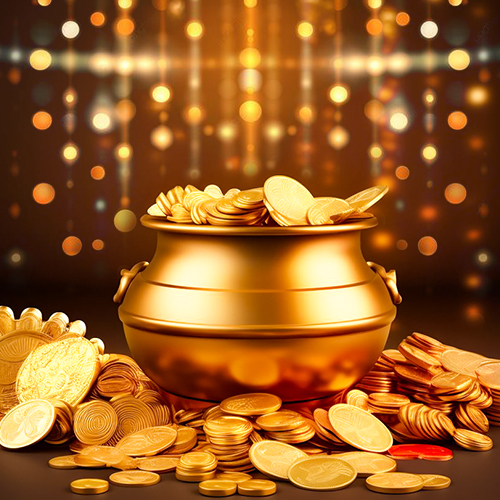
-in-Astrology.jpg)
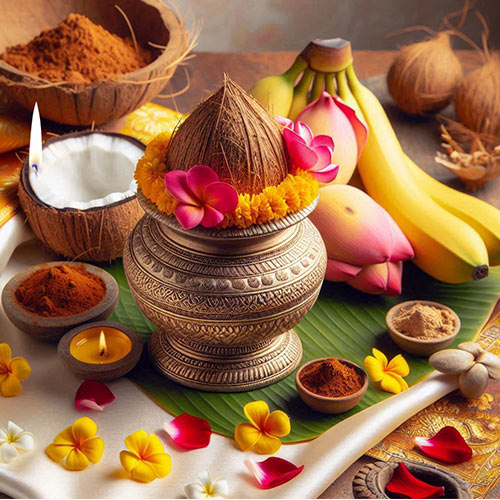
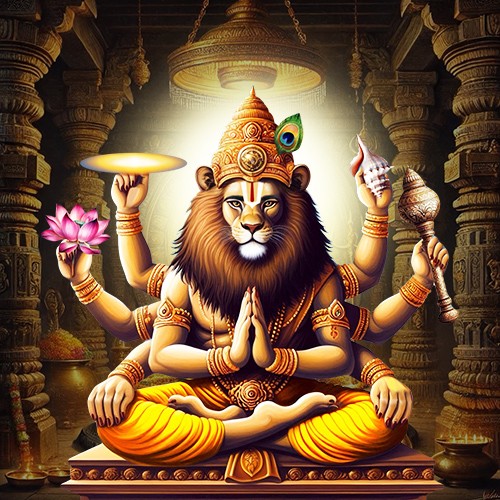
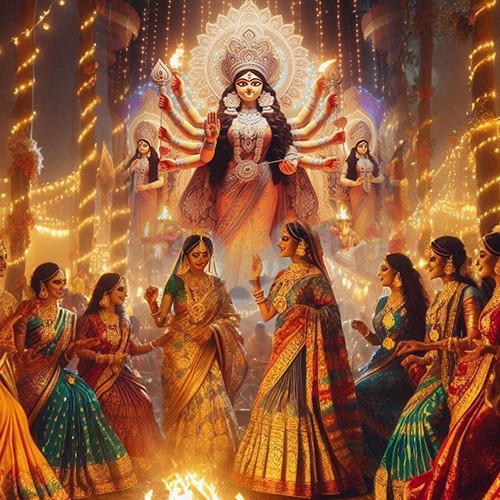
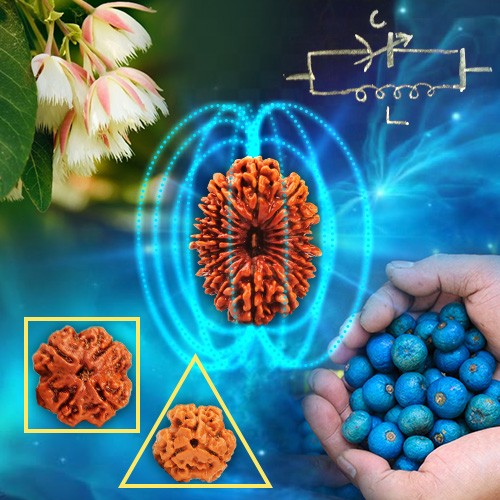

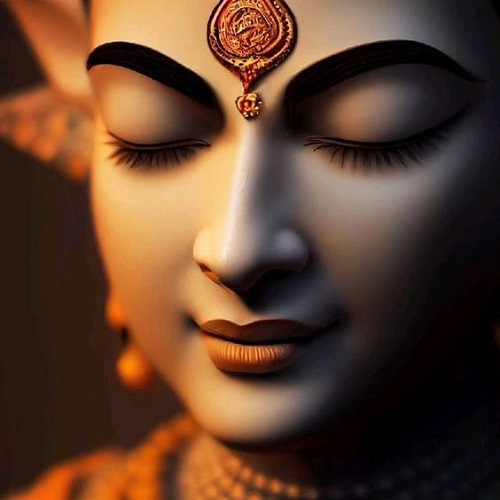
.jpg)

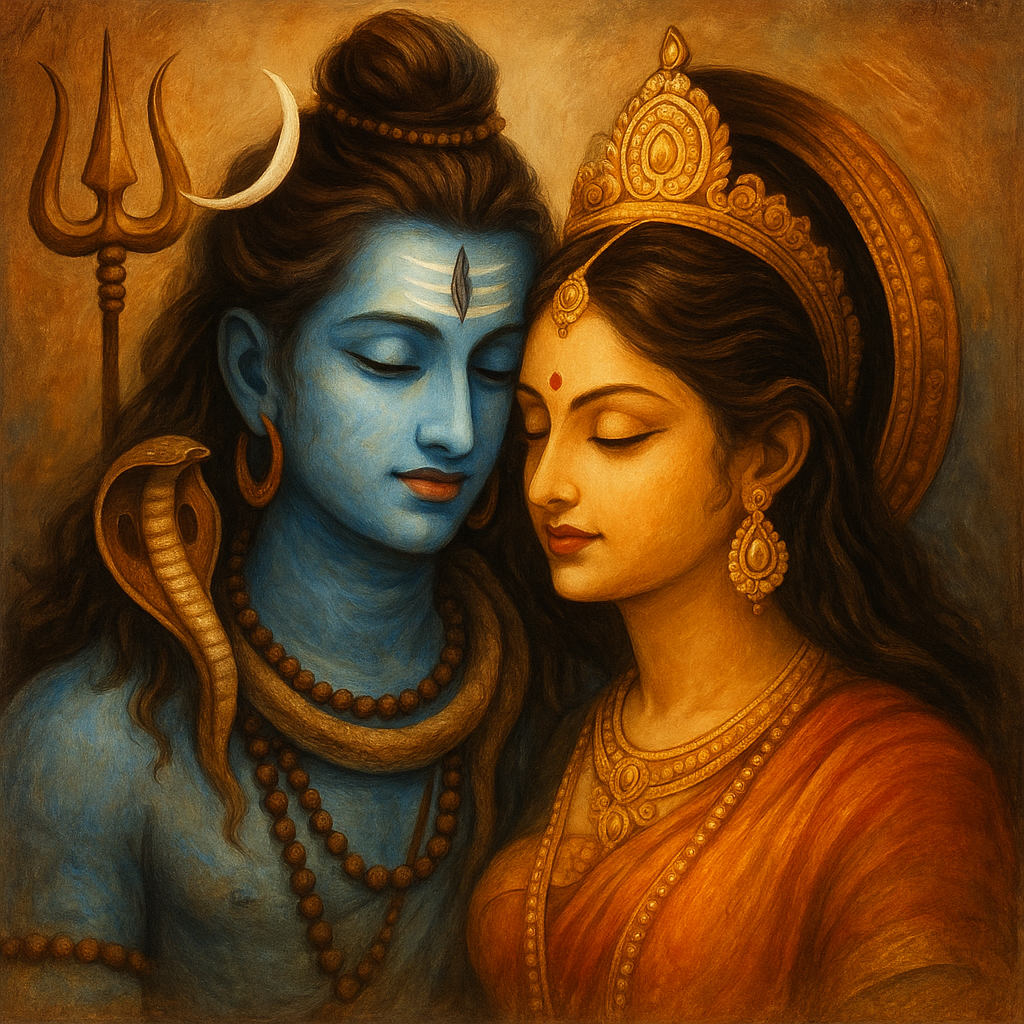
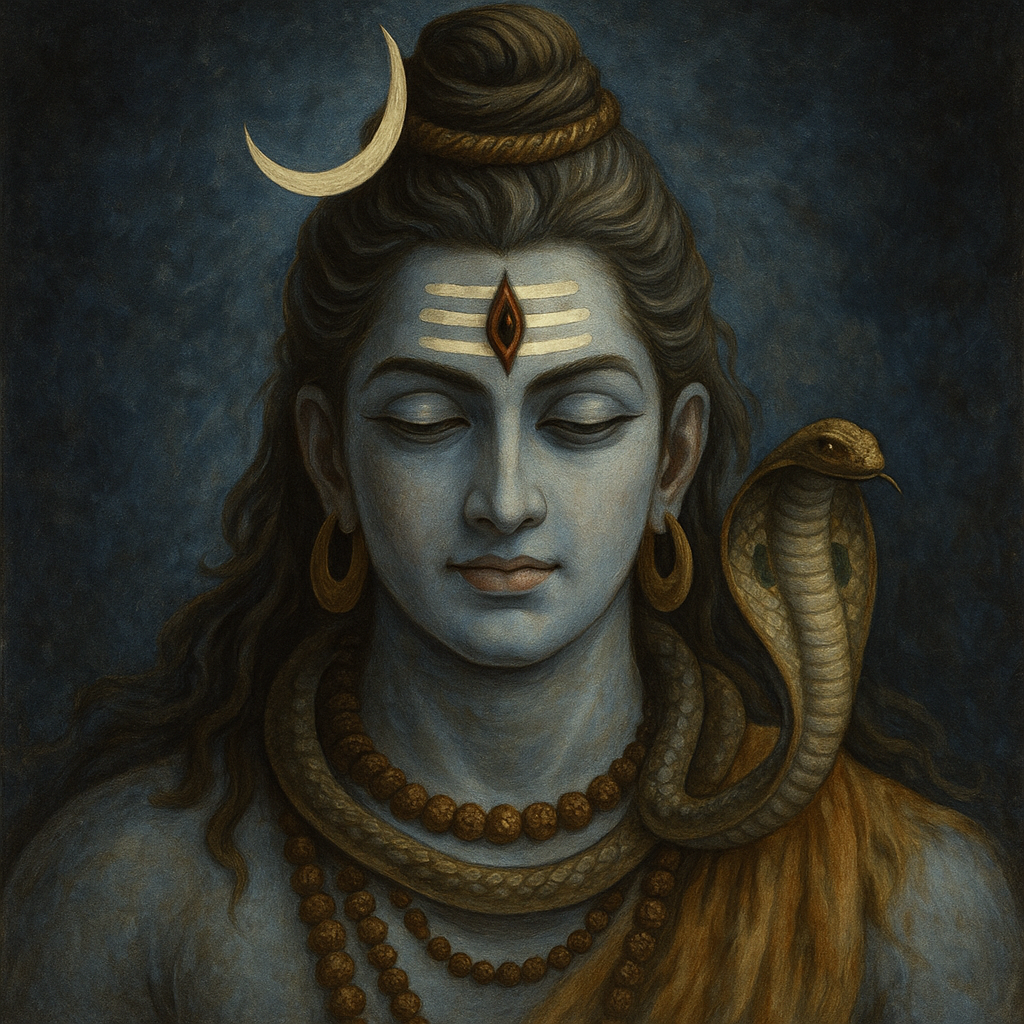
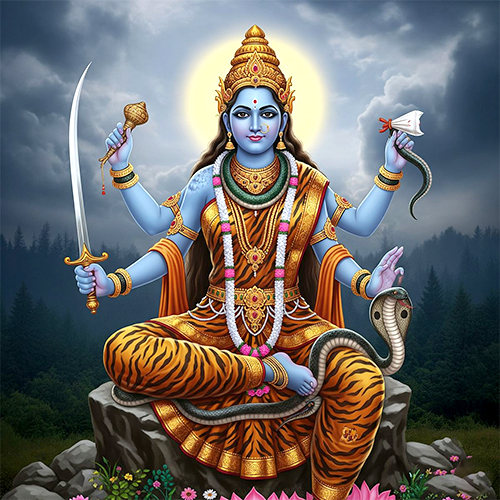
Nagaiah Velu
|December 27, 2024
Thank you for the knowledge.